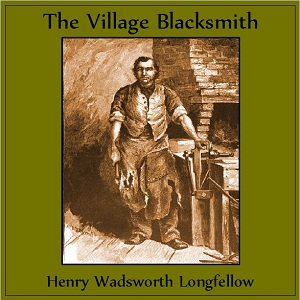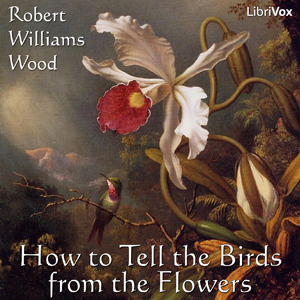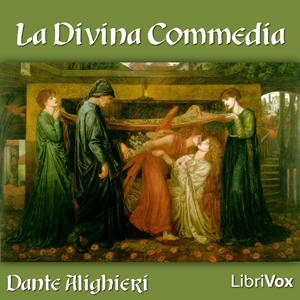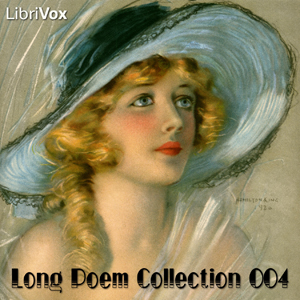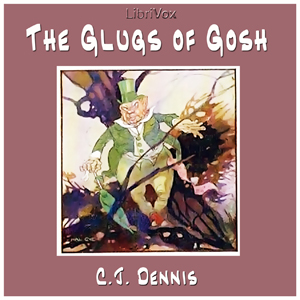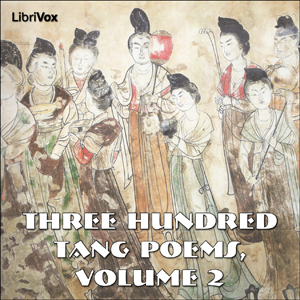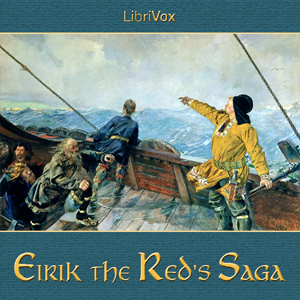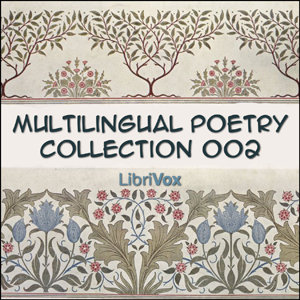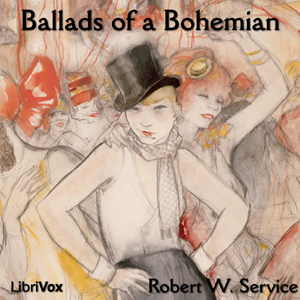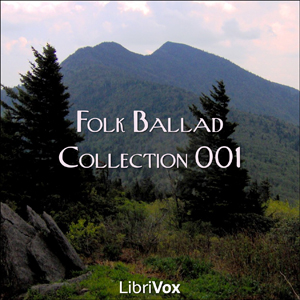Perhaps Edgar Allen Poe's most famous poem, the "Raven" is a macabre exploration of a man, his memories of Lenore, and the black bird that interrupts his studies on a dark December night, with tap-tap-tapping at his chamber door. (Summary by Hugh)
1 episodes
For killing an albatross, the mariner and his crew are punished with drought and death. Amidst a series of supernatural events, the mariner's life alone is spared and he repents, but he must wander the earth and tell his tale with the lesson that "all things great and small" are important.
(Summary written by Gesine)
1 episodes
Librivox volunteers bring you eight different readings of Siegfried Sassoon's The Road, a weekly poetry project. (Summary by Annie Coleman)
8 episodes

The Rocket Book can be listened to while viewing a beautiful facscimile edition at the International Children's Digital Libarary (ICDL): http://childrenslibrary.org/
The Rocket Book begins when the son of a building superintendent sets a match to a rocket he discovered in the basement. Suddenly, the rocket blasts its way up through apartment after apartment in a high-rise, disrupting and transforming the humdrum goings-on of twenty families till it is finally stopped cold by something in the attic. An elliptical hole is punched in each of the book's pages and illustrations to signify where the rocket passed through every apartment! As in all of Newell's books, the verse on the verso-page provides commentary on the recto-page illustration.
This book and Newell’s The Slant Book pioneered the “special format” children’s literature of today, such as pop-up books or cutout books like Eric Carle’s The Very Hungry Caterpillar. Newell’s books from 80 years ago have been reprinted, since Newell has undergone a resurgence in popularity much as Dr. Seuss’s books did during the 1980s. This is a boon for teachers and home-schooling parents, since this recording can now be listened to as youngsters page through a real book (ISBN: 0-8048-0505-9) or as they view the ICDL scanned version online (both are a real treat)! (Summary by Denny Sayers)
1 episodes
Librivox’s weekly poetry project for the week of February 5, 2006 offers fourteen versions of "The Song My Paddle Sings" from the collection Flint and Feather by E. Pauline Johnson.
E. Pauline Johnson, also known as Tekahionwake, was born to the Mohawk Chief G.H.M. Johnson (Onwanonsyshon), and his wife, Emily S. Howells, a lady of pure English parentage. Pauline, born and raised in Canada, was a great reader and began writing poetry as a child. She died in 1913 after having poetry published in periodicals in several countires and collections of her work published in book form. (Summary adapted from the "Biographical Sketch" included in Flint and Feather)
14 episodes
LibriVox volunteers bring you eleven different recordings of The Village Blacksmith, by Henry Wadsworth Longfellow. This was the weekly poetry project for the week of October 1st, 2006.
11 episodes
The Waste Land is a highly influential 433-line modernist poem by T. S. Eliot. It is perhaps the most famous and most written-about long poem of the 20th century, dealing with the decline of civilization and the impossibility of recovering meaning in life. Despite the alleged obscurity of the poem—its shifts between satire and prophecy, its abrupt and unannounced changes of speaker, location and time, its elegiac but intimidating summoning up of a vast and dissonant range of cultures and literatures—the poem has nonetheless become a familiar touchstone of modern literature. Among its famous phrases are “April is the cruelest month” (its first line); “I will show you fear in a handful of dust”; and “Shantih shantih shantih” (its last line). The title is sometimes mistakenly written as “The Wasteland”. (Summary from wikipedia.org)
4 episodes

The Tang Dynasty (618 to 907) was a golden age of Chinese culture: religion and philosophy, painting and calligraphy, sculpture, architecture and music all reached peaks of perfection. Poetry was the epitome of the arts: a scholastic requirement, a route to fame, a moulder of character. Nearly 50,000 poems of the Tang have survived. The collection 'Three Hundred Tang Poems' was compiled around 1763. It comprises six volumes, with poems grouped by verse form. Volume 1 covers the 'ancient verse' style in five-character lines (poems 1 to 35), and 'folk song style verse' (36 to 45). The masters Li Bai, Du Fu and Wang Wei are well represented here.
Recordings in this volume are in Cantonese, Hokkien, Mandarin and Taiwanese, as indicated in the titles; some are spoken, others are sung. (Summary by David Barnes)
Files containing the text in both Chinese and English for the individual poems in this collection can be downloaded by poem number in pdf format from LibriVox’s Three Hundred Tang Poems, Volume 1 Internet Archive page
104 episodes
Librivox volunteers bring you six different readings of The Voice of the Ancient Bard, by William Blake. This is a weekly poetry project. (Summary by Annie Coleman)
6 episodes
LibriVox’s first Multilingual Poetry Collection, where LibriVox volunteers read their favourite public-domain poems in languages other than English. (Summary by David Barnes).
20 episodes
The Congo is one of the best-known poems by American poet Vachel Lindsay (1879-1931). It was revolutionary in its use of sounds and rhythms — as sounds and rhythms — and includes elaborate annotations to guide its spoken performance. Lindsay categorized The Congo as “higher Vaudeville” and was famous for his exuberant performances of it. The poem’s imagery is racist, but Lindsay was a product of his time — born 14 years after the end of the American Civil War in Abraham Lincoln’s hometown, he revered Lincoln and viewed himself as a friend and supporter of African-American culture.(Summary by Kathy Thile)
1 episodes
LibriVox volunteers bring you eight different recordings of The Singing-Woman from the Wood's Edge, by Edna St. Vincent Millay, to celebrate Halloween. This was the weekly poetry project for the week of October 29th, 2006.
8 episodes
Chamber Music is a collection of poems by James Joyce, first published in May of 1907. The collection originally comprised thirty-four love poems, but two further poems were added before publication ("All day I hear the noise of waters" and "I hear an army charging upon the land").
Although the poems did not sell well, they received some critical acclaim. Ezra Pound admired the "delicate temperament" of these early poems, while Yeats described "I hear an army charging upon the land" as "a technical and emotional masterpiece". In 1909, Joyce wrote to his wife, "When I wrote [Chamber Music], I was a lonely boy, walking about by myself at night and thinking that one day a girl would love me."
Summary adapted from Wikipedia by Annie Coleman
1 episodes
LibriVox’s Spanish Poetry Collection 001: a collection of 10 Spanish language public-domain poems.
10 episodes
Librivox’s Long Poems Collection 003: a collection of 8 public-domain poems longer than 5 minutes in length.
8 episodes
The poem Liian Paha Sappi by Aaro Hellaakoski, which tells the tale of a child struggling to keep his temper:
A TEMPER TOO BAD
How it burns my sisu when I have to be quiet If my will would be fulfilled the undertaker would get grain.
A little boy has gotten a temper too bad This sisu cannot be put out by even the most snowy Lapland.
This project is unusual in that most of the readers are non-Finnish speakers, and learned the poem phonically. (Summary by Juho Fröjd and Catharine Eastman)
6 episodes
How do you tell apart a parrot from a carrot? A plover from a clover? A bay from a jay? Although there are several ways of differentiating, R. W. Wood’s use of pun and rhyme is one of the most entertaining! (Summary by Andrea L.)
1 episodes
Wilde’s meditation on capital punishment, the Ballad of Reading Gaol comes after he was convicted and imprisoned under charges of gross indecency. The charges stemmed from his affair with Lord Alfred Douglas, the son of the Marquis of Queensberry. It relates the story of an execution of a man who murdered his wife which Wilde witnessed during his internment. Published in 1898, it was Wilde’s last published poem as he would die in 1900 from cerebral menengitis, caused by syphilis.(Summary by John Gonzalez)
1 episodes

In 1895, Oscar Wilde was sentenced to 2 years of hard labor for acts of ‘gross indecency’. During his time at Reading Gaol, he witnessed a rare hanging, and in the three years between his release and his untimely death in 1900, was inspired to write the following poem, a meditation on the death penalty and the importance of forgiveness, even for (and especially for) something as heinous as murdering one’s spouse; for even the murderer, Wilde argues, is human and suffers more so for being the cause of his own pain, for ‘having killed the thing he loved’; for everyone is the cause of someone else’s suffering and suffers at the hands of another. It is this that Jesus Christ could see; he could continue to see the beauty of our humanity, despite all that we may do to each other, and encouraged us to love each other just the same. “The Ballad of Reading Gaol” was published in 1898 and would gain Wilde greater recognition as a poet (in addition to being a great playwright); although his only other volume of poetry, one of his earliest works that he’d published, was also well-received. Sadly, ‘The Ballad’ would be his last.
(Summary by Linda Leu).
1 episodes
Librivox’s Short Poetry Collection 018: a collection of 20 public-domain poems.
20 episodes
La Divina Commedia, originalmente Commedìa, è un poema di Dante Alighieri, capolavoro del poeta fiorentino, considerata la più importante testimonianza letteraria della civiltà medievale e una delle più grandi opere della letteratura universale.
È diviso in tre parti chiamate cantiche: Inferno, Purgatorio, Paradiso; il poeta immagina di compiervi un viaggio ultraterreno.
Il poema, pur continuando i modi caratteristici della letteratura e dello stile medievali (ispirazione religiosa, fine morale, linguaggio e stile basati sulla percezione visiva e immediata delle cose), tende a una rappresentazione ampia e drammatica della realtà, ben lontana dalla spiritualità tipica del Medioevo, tesa a cristallizzare la visione del reale. (Sommario di Wikipedia)
19 episodes
Librivox’s Long Poems Collection 004: a collection of 8 public-domain poems longer than 5 minutes in length.
8 episodes
Max und Moritz - Eine Bubengeschichte in sieben Streichen (Erstveröffentlichung 4. April 1865) ist das wohl bekannteste Werk von Wilhelm Busch. Das Werk wird oft als Vorläufer der modernen Comics bezeichnet da die zahlreichen, von Busch selbst gezeichneten Bilder, in so enger Beziehung zu dem Text stehen. In Paarreimen erzählt die Geschichte von den bösartigen Streichen der zwei Buben Max und Moritz, deren Streiche sich hauptsächlich gegen Respektspersonen der damaligen Gesellschaft richten. Diese Geschichte ist für ein sehr junges sowohl als auch für ein Erwachsenes Publikum geeignet. Viele werden sich an diese Geschichte aus ihrer Kindheit liebevoll erinnern. (Zusammenfassung von Mikki)
1 episodes
Max und Moritz - Eine Bubengeschichte in sieben Streichen (Erstveröffentlichung 4. April 1865) ist das wohl bekannteste Werk von Wilhelm Busch. Das Werk wird oft als Vorläufer der modernen Comics bezeichnet da die zahlreichen, von Busch selbst gezeichneten Bilder, in so enger Beziehung zu dem Text stehen. In Paarreimen erzählt die Geschichte von den bösartigen Streichen der zwei Buben Max und Moritz, deren Streiche sich hauptsächlich gegen Respektspersonen der damaligen Gesellschaft richten. Diese Geschichte ist für ein sehr junges sowohl als auch für ein erwachsenes Publikum geeignet. Viele werden sich an diese Geschichte aus ihrer Kindheit liebevoll erinnern.
1 episodes
Deep in the heart of every parent is the wish, the desire, to have other adults tell us, in an unsolicited way, just how very polite one’s child is! This perhaps was even more the case in 1903, when Gelett Burgess produced his second book on the Goops. With entertaining cartoons - cariacatures of misbehaving children - he described many different breaches of tact and good manners.
Burgess wrote several books of poetry on the Goops, each poem describing some significant way in which an unthoughtful or unkind child could offend polite society and often offering the hope that the listener would never behave that way. Ahem! Well, perhaps very few people have succeeded in not acting Goop-like at some point in their lives, but read along with Burgess as he attempts to define, in a humorous fashion, exactly what the differences between “Good” and “Goop” are!(Summary by Mark F. Smith)
1 episodes
Krasavitse, Kotoraya Niuhala Tabak (To a Beautiful woman, Who Was Smelling Tobacco) is a small poem written by Alexander Pushkin, a famous Russian poet well known outside the Russia. The author describes in a fun and artistc way the conflict between an image inside of his head of the beautiful and lovely women on the one hand, and her action - smelling tobacco - on the other hand! Can anyone imagine two more incompatible things than a clean and bright woman and a dirty toy of alcoholics and sailors - tobacco! This conflict hit the author straight into his heart, so he couldn’t ignore it and wrote this amazing poem upon such a revelational theme.(Summary written by Yakovlev Valery)
1 episodes
LibriVox volunteers bring you nine different recordings of Work without Hope, by Samuel Taylor Coleridge, in honor of Labor Day. This was the weekly poetry project for the week of September 3rd, 2006.
9 episodes
LibriVox volunteers bring you seventeen recordings of Sonnet 116 by William Shakespeare. This was the weekly poetry project for the week of October 15th, 2006.
17 episodes
First published in 1917, The Glugs of Gosh satirizes Australian life at the start of the twentieth century - but the absurdities it catalogs seem just as prevalent at the start of the twenty-first. The foolishness of kings, the arrogance of the elite, the gullibility of crowds, the pride of the self-righteous, the unthinking following of tradition - all find themselves the targets of C. J. Dennis' biting wit. (Summary by Chris Goringe).
6 episodes
Librivox’s Short Poetry Collection 019: a collection of 20 public-domain poems.
20 episodes
LibriVox volunteers bring you two different recordings of The New-England Boy’s Song About Thanksgiving Day, by Lydia Maria Child, to celebrate Thanksgiving, 2006. This was the weekly poetry project for the week of November 19th, 2006.
2 episodes
Compiled around 1763, 'Three Hundred Tang Poems' is the standard collection of the poetic art of the Tang Dynasty (618 to 907). Volume Two includes the styles 古言七诗 'seven character ancient verse' (poems 46 to 73) and 古乐府 'ancient folk-song styled verse' (poems 74 to 89). (Summary by David Barnes)
Files containing the text in both Chinese and English for the individual poems in this collection can be downloaded by poem number in pdf format from LibriVox’s Three Hundred Tang Poems, Volume 2 Internet Archive page
111 episodes
Carl Sandburg's collection of 103 poems that earned a Pulitzer Prize Special Letters Award in 1919.
5 episodes
"Baby's Own Aesop" presents the fables as one-stanza limericks, each "pictorially pointed" by Walter Crane, the noted painter and illustrator. He apprenticed to master wood-engraver, William James Linton, who furnished the draft of the book's poems for Crane to edit. "Baby's Own Aesop" is available in a beautiful facsimile edition of colored engravings from the International Children's Digital Library, with which your child can read along while listening to the recording. (Summary by Denny Sayers)
6 episodes
Don Juan is a long narrative poem by Byron, based very loosely on the legend of the evil seducer, Don Juan. The first and second of (eventually) seventeen Cantos composed during Byron's self-imposed exile from England appeared, anonymously, in July 1819 and were greeted with scandal, condemnation, admiration and hilarity. Modern critics generally consider the self-proclamed 'epic', which remained incomplete at Byron's death, to be his masterpiece. (Summary by Peter Gallagher).
7 episodes
LibriVox volunteers bring you nine different recordings of When We Two Parted, by George Gordon, Lord Byron. This was the weekly poetry project for the week of November 26th, 2006.
9 episodes
In this saga, the events that led to Eirik the Red's banishment to Greenland are chronicled, as well as Leif Eirikson's discovery of Vinland the Good (a place where wheat and grapes grew naturally), after his longboat was blown off-course. By geographical details, this place is surmised to be present-day Newfoundland, and is likely the first European discovery of the American mainland, some five centuries before Christopher Columbus's journey. (Summary from Wikipedia.)
6 episodes
LibriVox volunteers bring you twelve different recordings of The Tiger, by William Blake. This was the weekly poetry project for the week of December 3rd, 2006.
12 episodes
LibriVox's 2006 Christmas Colletion containing public domain short stories, essays, poems, and scripture passages recorded by a variety of LibriVox members.
26 episodes
This collection includes 40 different Christmas carols collected and read by Douglas D. Anderson, the creator of The Hymns and Carols of Christmas website, a public-domain collection of Christmas music containing over 2,600 hymns, carols and songs.
40 episodes
In LibriVox’s Multilingual Poetry Collection, LibriVox volunteers read their favourite public-domain poems in languages other than English. (Summary by David Barnes).
20 episodes
LibriVox volunteers bring you nine different recordings of Aedh Wishes for the Cloths of Heaven, by William Butler Yeats. This was the weekly poetry project for the week of December 10th, 2006.
9 episodes
LibriVox volunteers bring you seven different recordings of The Oxen, by Thomas Hardy. This was the weekly poetry project for the week of December 17th, 2006.
7 episodes
Ballads of a Bohemian is a collection of poems tied together by the narration of the "author" Stephen Poore. The poems speak of bohemian life in Paris before the war, his experiences during World War I and its aftermath. (Summary by Kristin Hughes)
20 episodes
Librivox’s first collection of sung and spoken folk ballads (13 in collection).
13 episodes
LibriVox volunteers bring you nine different recordings of Christmas Bells, by Henry Wadsworth Longfellow. This was the weekly poetry project for the week of December 24th, 2006.
9 episodes
Beloved by many generations of children, A Child's Garden of Verses is a beautiful collection of children's poetry. Sometimes thoughtful, sometimes whimsical, but always fun. (Summary by Arctura)
4 episodes
LibriVox volunteers ring in the new year with nineteen recordings of Ring Out, Wild Bells by Alfred, Lord Tennyson. This was the weekly poetry project for the week of December 31st, 2006.
19 episodes
Librivox’s Short Poetry Collection 020: a collection of 20 public-domain poems.
20 episodes
LibriVox volunteers bring you 14 different recordings of The Magi, by William Butler Yeats to celebrate the Feast of the Epiphany. This was the weekly poetry project for the week of January 7th, 2007.
14 episodes





